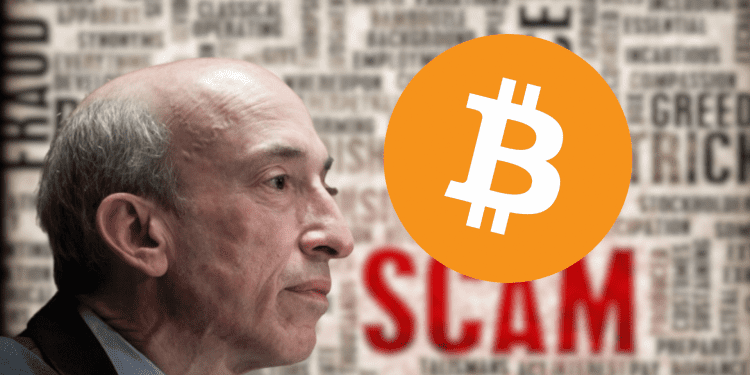- U.S. Securities and Exchange Commission Chair Gary Gensler denied allegations that he is overly focused on the crypto industry, arguing that it’s the financial press that has become overly focused on the issue relative to traditional securities markets.
- The SEC brought 46 crypto-related enforcement actions last year, a 53% increase from the previous year, but these were just a fraction of the 501 total actions brought.
- Crypto companies are more likely to refuse to settle with the SEC and take their chances in court, with high-profile targets like Coinbase, Binance, and Kraken deciding to litigate against the SEC’s enforcement actions.
U.S. Securities and Exchange Commission Chair Gary Gensler denied allegations that he is overly focused on the crypto industry in a Tuesday interview, arguing that it’s the financial press that has become overly focused on the issue relative to traditional securities markets.
Gensler: Crypto gets disproportionate media attention
“We oversee a $110 trillion capital market. Crypto is a small piece of our overall markets, but it’s an outsized piece of the scams and frauds and problems in our markets,” Gensler said in an interview with CNBC.
”You end up with an outsized ration of journalists questions…to market cap,” he added. ”It’s also a function of where the financial media is focused.”
Crypto enforcement surged last year, but still small share of cases
The SEC has ramped up enforcement actions against digital asset firms of late. Last year the agency brought a total of 46 crypto-related enforcement actions, a 53% increase from the year prior.
Still those were just a fraction of the 501 total actions brought last year, according to analyses by Cornerstone Research and the law firm Gibson Dunn.
Crypto firms more likely to fight charges
Crypto companies are however more likely to refuse to settle with the SEC and take their chances in court. Of the 46 actions brought last year, several high profile targets including Coinbase COIN, -3.44%, Binance, and Kraken, decided to litigate.
Typically, the SEC settles about 98% of all enforcement cases.














